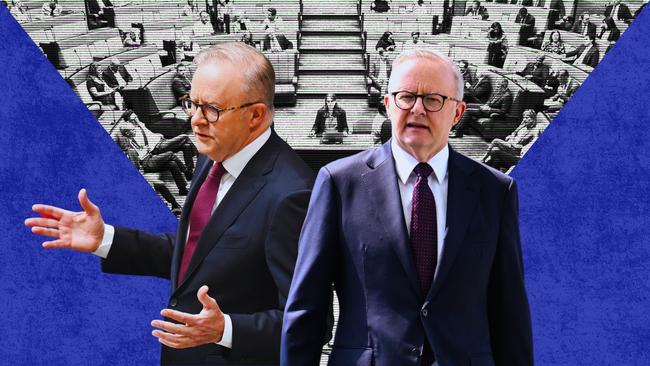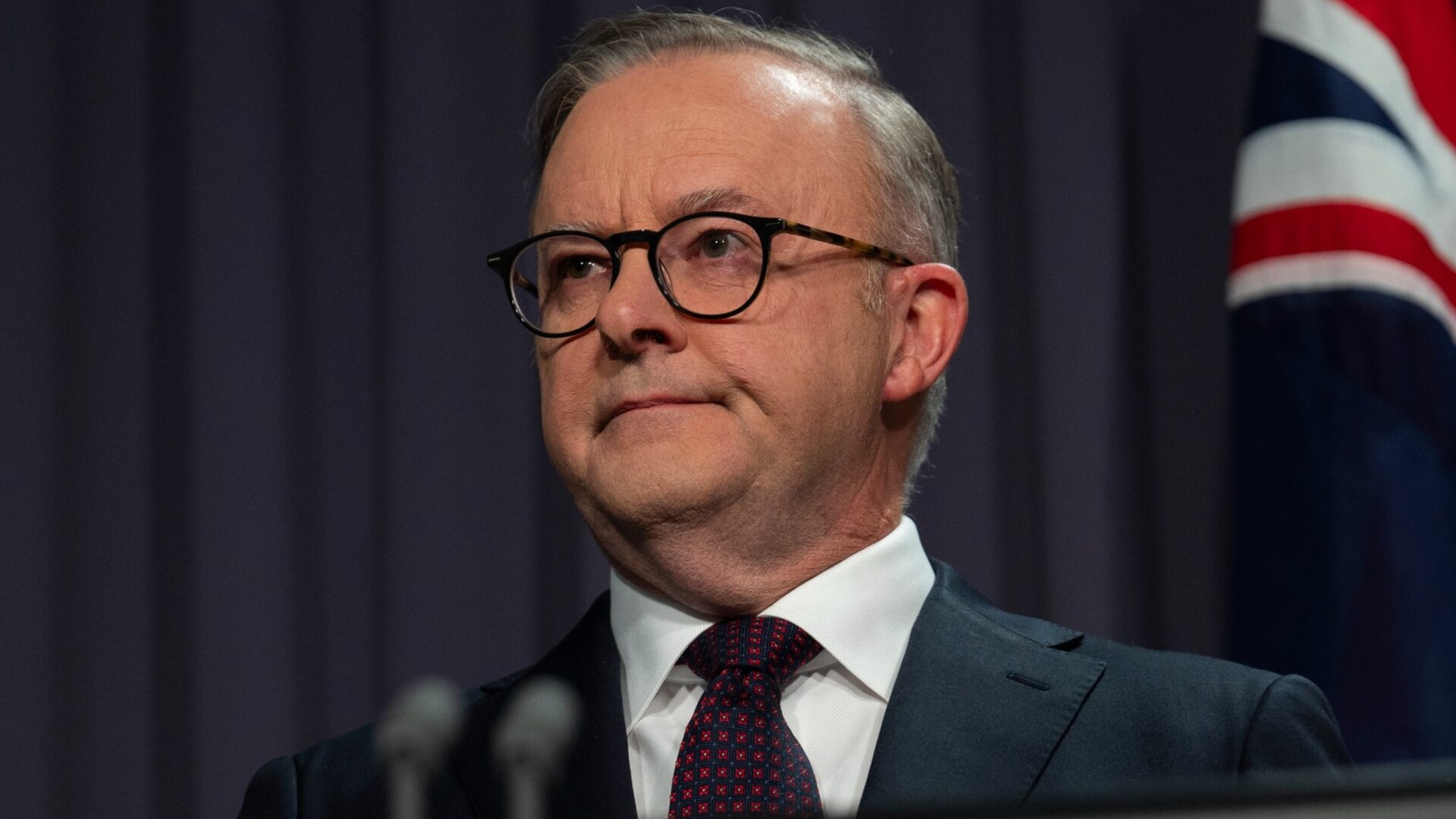
Ahead of the last election, the Prime Minister promised more robust debate in parliament and restoration of the integrity of our democratic system. On his own key performance indicators, Albanese has come up short.
In his first address to government MPs following the election, Albanese said: “We often came to the parliament without much to do in terms of an agenda before the parliament. This Labor government will not be like that and we will hit the ground running.”
Analysis of the 47th parliament, prepared by the Coalition and based on House of Representatives Procedure Office and Parliamentary Library data, shows Labor got less legislation through the parliament than the Morrison government, with 366 bills passed versus 438 bills.
Compared with the pandemic-plagued 46th parliament which sat for 170 days, Albanese’s parliament has sat for 168 days. While the sitting calendars are almost identical in duration, there were 1069 hours for government business compared with 914 hours in the previous parliament.
Another trend under the Albanese government was the volume of bills referred to the secondary Federation Chamber, which the Coalition claims was used as a “clearing house” to avoid public scrutiny. Labor moved 45 per cent of all House of Representatives bills to the Federation Chamber, compared with the Morrison government’s 3 per cent.
Government leader of the house Tony Burke on Monday said the 47th parliament had worked “harder and worked smarter”.

“We’ve spent more time debating legislation and stopped the daily process of voting on whether the government should be silencing other members,” he said.
“But most significantly, there has been change since the Jenkins review. With the new 6.30pm rule on quorums and divisions, the practice, which has been in place for generations, of members gathering in their offices and drinking late into the night has come to an abrupt halt. The work of changing the culture of parliament never finishes, but in this parliament there has been a change of direction that was long overdue.” Labor associates the difference in bills passed with several larger pieces of legislation, such as the industrial relations changes, being pushed through parliament compared with previous governments opting for smaller pieces of legislation.
Another defining parliamentary statistic is the sharp reduction in allocated questions for Peter Dutton’s opposition compared with Albanese’s Labor opposition under Morrison.
While the government would argue the Coalition received fewer question time slots due to a larger crossbench, the 1155 questions asked by Dutton’s opposition was the lowest total since the Keating government, which allowed 1080 opposition questions in the mid-1990s.
During the 46th parliament, Albanese’s opposition asked 1618 questions. Opposition manager of business Michael Sukkar said Albanese, a leader of the house in the Rudd and Gillard governments, was “not a man of his word”. “Before the election he promised to increase transparency and change the tone of politics, but the data doesn’t lie and he has once again broken his promise and failed. What’s also evident is how scared this government is of scrutiny. During question time, we’ve seen record-low numbers of questions asked and QT cut short,” Sukkar said.
The Coalition says it took a more mature approach than Labor in avoiding motions to suspend standing orders in the parliament and disrupt government business. Albanese’s opposition moved 103 motions to suspend standing orders, including moving several in one day, compared with Dutton’s opposition which moved only 40 motions.
While scoring some major legislative wins, such as sweeping IR changes including several that weren’t taken to the 2022 election and climate change-related laws secured via deals with Greens and crossbenchers, the Albanese government’s first-term agenda was undermined by delays to big-ticket funding vehicles including the $10bn Housing Australia Future Fund.
Ahead of an expected April 12 election, Labor has lost friends throughout the term over criticism around transparency and fairness, including forcing stakeholders to sign non-disclosure agreements, rejecting and delaying FOI applications and cutting staff allocations for independents.




Anthony Albanese has delivered less legislation than Scott Morrison, presided over fewer parliamentary sitting days and slashed opposition questions, despite his 2022 election pledge to make parliament more transparent.